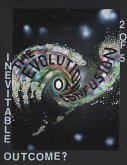In "The Law Inevitable," Louis Couperus crafts a compelling narrative that probes the intricacies of fate, desire, and moral dilemmas. Set against the backdrop of the Dutch upper class in the early 20th century, the novel intertwines lush, impressionistic prose with a psychological depth that resonates with the existential themes prevalent in contemporary literature. Couperus employs a rich tapestry of character development, exploring the dualities of human nature as his protagonists grapple with personal ambitions and societal expectations, ultimately revealing the inexorable forces that shape their destinies. Louis Couperus, a prominent Dutch novelist and a key figure in the literary movement known as Symbolism, drew on his extensive travels and experiences within European culture to inform his writing. His keen observation of social norms and psychological nuances is reflected in his protagonists' internal conflicts, leading to profound questions about the role of destiny and free will. Couperus's own life, marked by a tension between his artistic aspirations and the conventions of his time, informs the compelling narrative of "The Law Inevitable." This novel merits recommendation for readers seeking a thought-provoking exploration of the intersection between individual choice and fate. Couperus's masterful prose engages with timeless themes, allowing readers to ponder the implications of their own lives within the context of predetermined forces. "The Law Inevitable" promises not only a rich reading experience but also an opportunity for reflective contemplation on the nature of existence.
Dieser Download kann aus rechtlichen Gründen nur mit Rechnungsadresse in A, B, BG, CY, CZ, D, DK, EW, E, FIN, F, GR, H, IRL, I, LT, L, LR, M, NL, PL, P, R, S, SLO, SK ausgeliefert werden.









